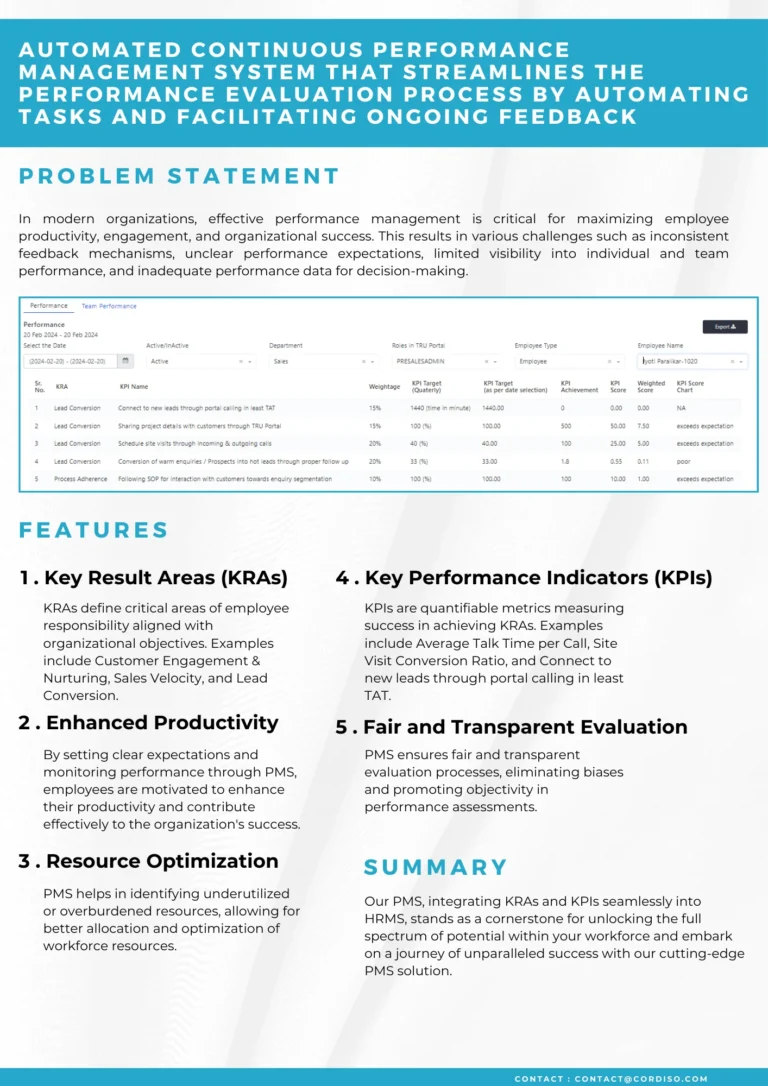ACPM: The Powerhouse Transforming the Real Estate Industry
The annual performance review process feels like a relic from a bygone era. Stiff meetings filled with generic feedback forms and outdated evaluations leave both employees and managers feeling frustrated and disengaged. Employees crave regular feedback to understand their strengths, weaknesses, and development opportunities. Managers struggle to find the time to provide meaningful feedback while juggling their already overloaded schedules.
But what if there was a better way? Enter Automated Continuous Performance Management Systems (ACPM). These innovative tools are revolutionizing the way we approach performance management. ACPMs move the focus away from a single, high-pressure annual review to a system of ongoing feedback and development. They streamline the process by automating administrative tasks such as setting goals, distributing feedback forms, ACPMs also leverage data from performance reviews, self-assessments, and peer feedback to provide personalized insights for both employees and managers. This allows employees to take ownership of their development and managers to make more informed decisions about employee training and career paths. Additionally, ACPMs can integrate with other HR tools, creating a centralized hub for performance management data. This holistic view allows organizations to identify trends, track team progress towards goals, and measure the overall effectiveness of their performance management strategy. By embracing ACPMs, organizations can create a more engaged and productive workforce, ultimately leading to improved business outcomes. and tracking progress. This frees up valuable time for meaningful one-on-one conversations between employees and managers, fostering a culture of continuous learning and growth.

Here's why ACPMs are the Future of Performance Management System
Goodbye, Annual Reviews
Say goodbye to the stress and anxiety of annual reviews. ACPMs facilitate continuous feedback conversations, empowering employees to grow throughout the year.
Streamlined Process
Automate administrative tasks like setting goals, distributing feedback forms, and tracking progress. This frees up valuable time for meaningful one-on-one discussions.
Data-Driven Insights
ACPMs leverage data from performance reviews, self-assessments, and peer feedback to provide personalized insights for both employees and managers.
Improved Engagement
Employees feel more valued and engaged when they receive regular, actionable feedback. This fosters a culture of learning and development.
Increased Transparency
ACPMs promote transparency by providing a clear picture of expectations and facilitating open communication.
Benefits of Automated Continuous Performance Management Sustem
Regular Feedback: Receive constructive feedback that helps you improve and grow in your role.
Development Opportunities: Identify strengths and weaknesses to build a personalized development plan
Goal Setting & Tracking: Set clear goals, track progress, and stay motivated throughout the year.
Increased Recognition: Feel valued and appreciated for your contributions.
Benefits of ACPMs for Managers
Simplify Performance Management: Spend less time on administrative tasks and more time coaching and developing your team.
Data-Driven Decisions: Make informed decisions about employee performance and development based on concrete data.
Improved Retention: A positive performance management experience fosters employee engagement and reduces turnover
Enhanced Communication: ACPMs facilitate more frequent and meaningful conversations with your team.
Cordiso offers user-friendly ACPM solutions. Contact us today to learn more!

